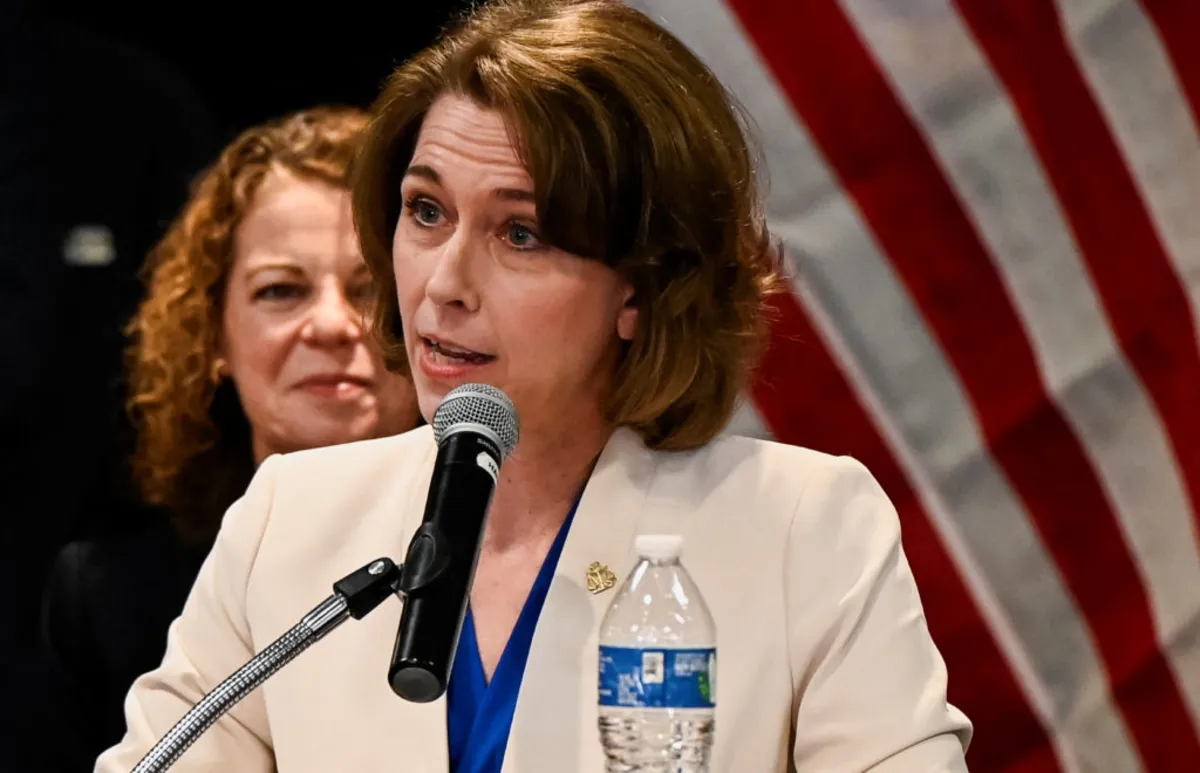
On Tuesday, a trio of elections served as an early warning sign for Republicans and President Donald Trump as they embark on an ambitious term. The elections highlighted the growing opposition from Democrats, particularly in response to Trump’s initiatives to slash the federal government and the influential role of billionaire Elon Musk. In the highly publicized race for a Wisconsin Supreme Court seat, the conservative judge, endorsed by Trump and financially backed by Musk's organizations to the tune of $21 million, suffered a significant defeat in a state that Trump had won just months prior.
Although Florida Republicans managed to retain two of the most pro-Trump House districts in the country, both candidates underperformed compared to Trump’s margins in the November elections. These contests were the first major elections since Trump reclaimed the presidency, providing an early gauge of voter sentiment as he seeks to radically reshape the federal government while navigating legal challenges and testing the limits of presidential power.
Typically, the party that loses the presidency in November gains seats in the subsequent midterm elections. Tuesday’s results sparked optimism among Democrats, who have faced intense scrutiny regarding their responses to Trump, suggesting a potential shift in voter sentiment.
Charlie Kirk, a conservative activist and podcaster, pointed out that the loss in the Wisconsin Supreme Court underscored a fundamental challenge for Republicans, especially in races where Trump is not on the ballot. “We did a lot in Wisconsin, but we fell short. We must recognize that we are the LOW PROP party now,” he stated, referring to low-propensity voters who do not regularly participate in elections. He emphasized the need for a strategic overhaul to engage these voters more effectively.
Wisconsin, a perennial battleground state, showed significant shifts to the left. Trump won Wisconsin by a narrow margin of 0.8 percentage points, or fewer than 30,000 votes, yet in this latest election, the state leaned heavily towards Judge Susan Crawford, the liberal candidate who garnered support from national Democrats and prominent donors like George Soros.
Strong turnout in Democratic-heavy areas was pivotal for Crawford, particularly in suburban counties around Milwaukee that Republicans typically rely on for statewide victories. She claimed victories in Kenosha and Racine counties, both of which had previously supported Trump. In interviews conducted in Waunakee, a politically mixed town north of Madison, many voters indicated that their choice was partly a rejection of Trump’s early presidency. “This is our chance to say no,” remarked Linda Grassl, a retired OB-GYN registered nurse.
Others expressed discomfort with Musk's significant influence on the election. “I don’t like Elon Musk spending money for an election he should have no involvement in,” voiced Antonio Gray, a 38-year-old security guard from Milwaukee. “Voters should choose freely without outside interference.”
Former Wisconsin Governor Scott Walker cautioned against drawing overly broad conclusions from the election results. He noted the difficulty in connecting the state Supreme Court race to Trump’s influence, suggesting that voters who felt neglected by the system might not participate in such judicial elections. “If you’re somebody who showed up for Trump because you feel forgotten, you don’t typically show up to vote in these kinds of elections,” Walker explained.
In contrast, Trump experienced greater success in Florida. Republican Randy Fine won the special election in the 6th District, succeeding Mike Waltz, who had stepped down to serve as Trump’s national security adviser. However, Fine's victory margin was 14 percentage points less than Waltz's win just five months earlier. Meanwhile, Jimmy Patronis, the state’s chief financial officer, also secured a win in a northwest Florida seat, though he too underperformed compared to his predecessor, Matt Gaetz.
The outcomes in Florida maintained the Republican majority in the House of Representatives at 220-213, despite concerns about a thin GOP majority leading to Trump’s withdrawal of the nomination for New York Representative Elise Stefanik to be United Nations ambassador.
For many voters in both Florida districts, allegiance to Trump remained the primary motivator. Teresa Horton, 72, admitted she wasn’t familiar with the candidates but simply voted along party lines. “I just went with my ticket,” she stated. Similarly, Brenda Ray, a retired nurse, expressed her vote was influenced by her belief that Patronis would “vote with our president.”
Despite being outspent by their Democratic opponents, both Fine and Patronis managed to secure victories. Michael Whatley, chairman of the Republican National Committee, interpreted the election results as a sign of the party’s resilience. “The American people sent a clear message tonight: they want elected officials who will advance President Trump’s America First agenda,” he declared.